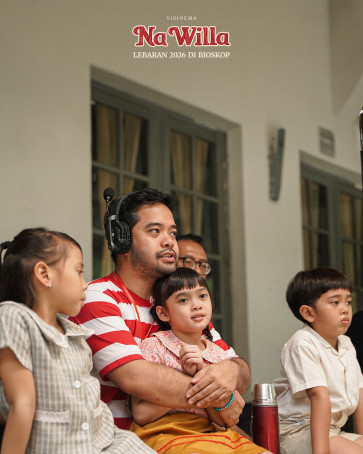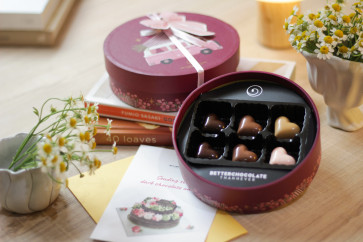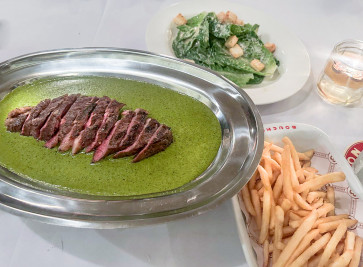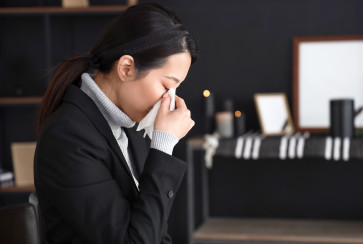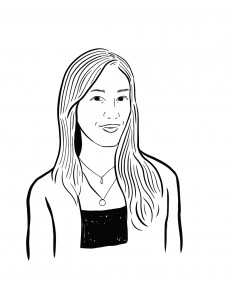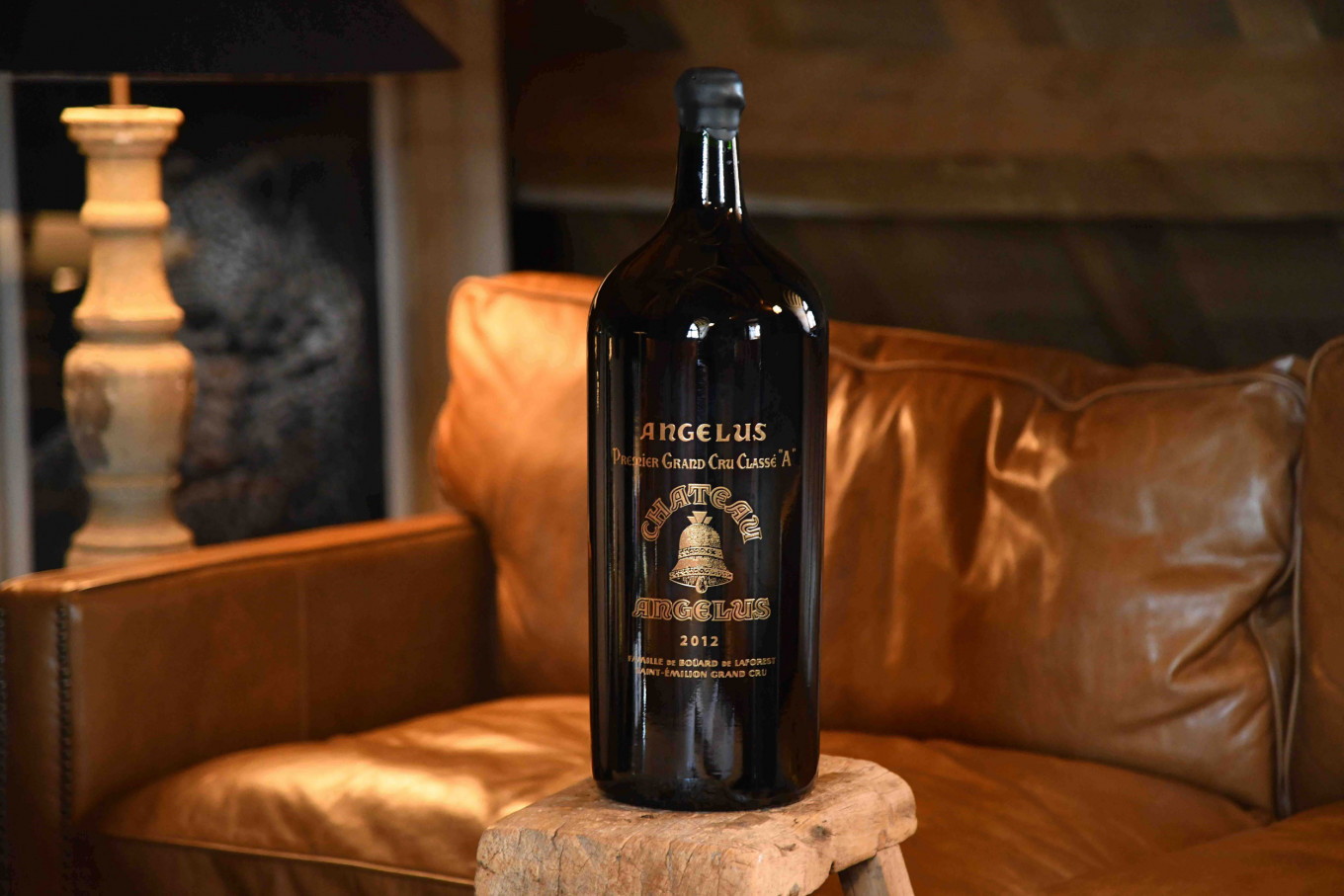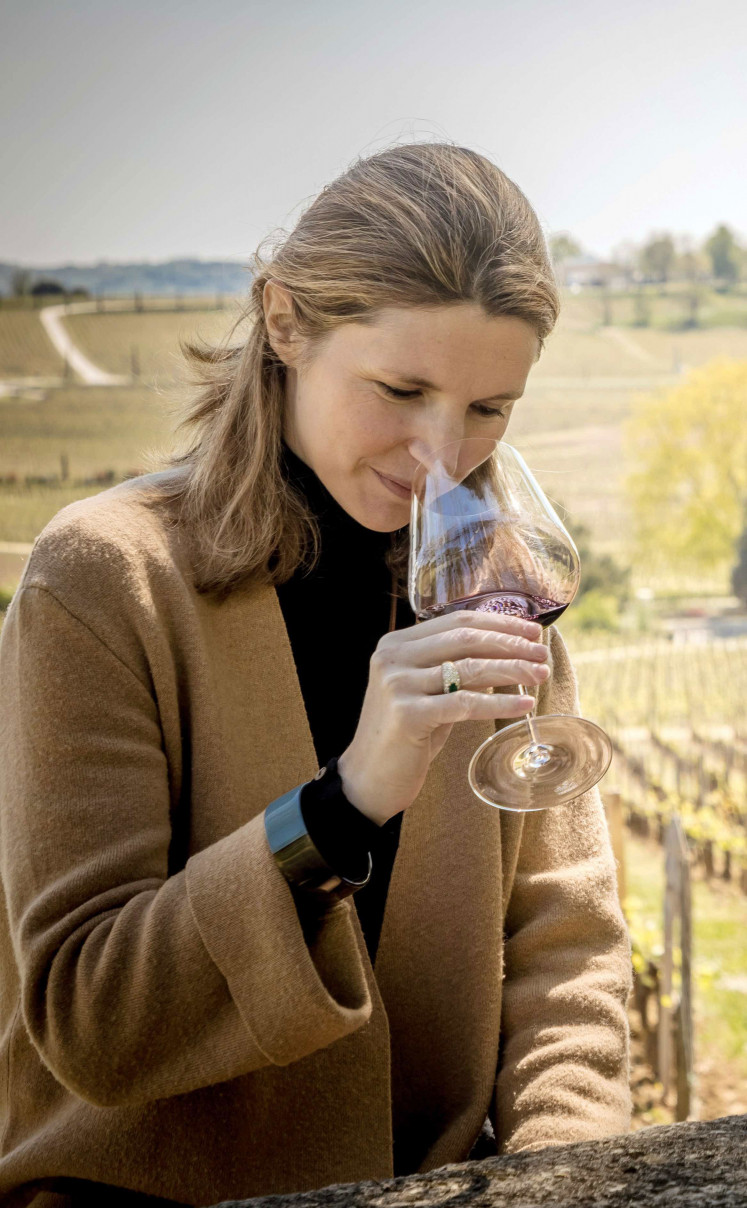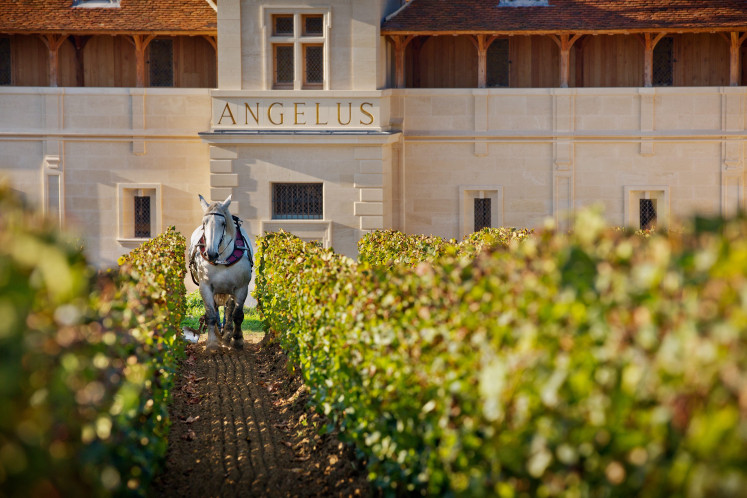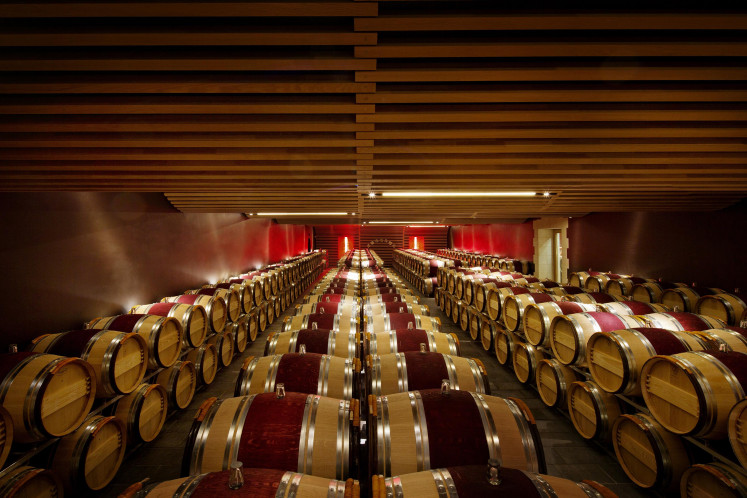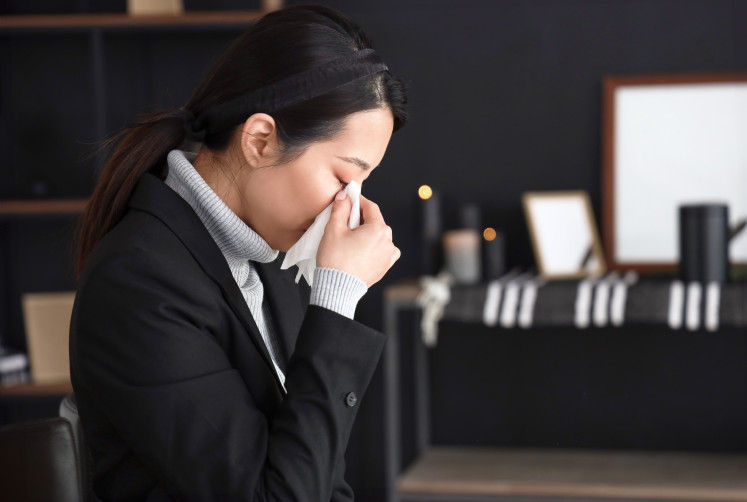The winery marked a turning point with Château Angelus 2012, the vintage that earned it Premier Grand Cru Classé A status. (Courtesy of Château Angelus)
Julia Child once said: “The world of wine is the world of life itself. It presents you with every degree of emotion, from the most joyous, ebullient sensations of well-being to, if you're unlucky, quite black periods of depression."
Every bottle of wine tells a different story, often one that begins in the vineyard where the grapes were cultivated. Winemaking techniques are typically passed down like heirlooms, with decisions made not for short-term gain, but for long-term vision.
For Château Angelus in France’s famed wine region of Bordeaux, that story began in 1544.
After eight generations, the brand’s essence has made its way via bottles of wine to The St. Regis Jakarta in Setiabudi, South Jakarta.
So, what stories are these bottles trying to tell?
Stories told in sips

Thank you!
For signing up to our newsletter.
Please check your email for your newsletter subscription.
“Each wine is different, but you can taste the signature and DNA of the family,” Bong Grelat-Tram, export director at Château Angelus, told a room filled with sommeliers and wine enthusiasts during a tasting event in mid May at the hotel’s urban restaurant J.J.A.
Inside one of the restaurant’s private rooms, each guest was presented with four bottles along with a charcuterie board: Château Angelus 2018, Château Angelus 2015, Carillon d’Angelus 2019 and Tempo d’Angelus 2023.
As she led the session, Grelat-Tram described how the weather helped shape the character of each vintage.
Though the two Bordeaux wines came from neighboring plots, they tasted remarkably different. The 2015 vintage carried a velvety profile with a cashmere finish. In contrast, the 2018 vintage, influenced by that year’s fluctuating temperatures, offered a balanced flavor: rich and bold, yet light as it finished.
I didn’t get to try the other two, but if the Bordeaux wines set the standard, there’s no doubt the others are equally special in their own right.
“You know, I always compare this work to a chef’s. If the chef understands his kitchen, his team and his ingredients, he can create magnificent food,” said Grelat-Tram, referring to the winemaking process.
“If you know how you should work in different areas in the vineyard, and you cannot use the same method everywhere – in fact, it's like tailor-made in each area in the vineyards – you give a signature in each plot,” she said.
Stéphanie de Boüard-Rivoal, the eighth generation of the Boüard de Laforest family, took over as CEO of Ch'teau Angelus in 2012. (Courtesy of Ch'teau Angelus)
Under the leadership of CEO Stéphanie de Boüard-Rivoal, the eighth generation of the Boüard de Laforest family, Château Angelus has entered a new chapter. Since taking over in 2012, Boüard-Rivoual has dedicated unprecedented resources to significantly expanding the vineyard’s holdings, especially for Carillon d’Angélus.
Carillon was born in 1987 and has since evolved into a wine in its own right. Since 2015, it has drawn its identity from three distinct terroirs of Saint-Émilion. Now, it’s treated as a distinct product within the portfolio.
Despite the expansion, the consistency that made the brand beloved remains.
“It’s a brand that people know and understand,” Grelat-Tram said, recalling a 75-year-old client who once visited the vineyard and proudly shared that he still kept a bottle passed down from his grandfather.
This kind of story is not uncommon. The brand has built a lasting reputation and is now sold in over 100 countries, including Indonesia.
But growth isn’t limited to wine. In 2013, Boüard-Rivoual expanded into hospitality by acquiring Le Logis de la Cadène, one of Saint-Émilion's oldest restaurants, which soon earned Michelin stars and became a fine dining destination.
More recently, L’Observatoire du Gabriel, located in Bordeaux, was awarded two Michelin stars.
‘Guardians’ of history
“The commitment for me is almost like a priestly vocation, which I take up with faith, passion and gratitude. We are only the guardians of a history that preceded us and will survive us, so our role is to sustain it in the best conditions we can achieve,” said Boüard-Rivoual.
The Ch'teau Angelus estate sprawls across 131 hectares in Saint-Émilion, a city in France’s famed Bordeaux wine region. (Courtesy of Chateau Angelus)
Spanning 130 hectares, the estate is managed by a team with expertise that has been passed down through generations. As Grelat-Tram pointed out, their work is guided by savoir vivre, or the art of living well. Under the guidance of winemaker and owner Hubert de Boüard, each member of the team knows their role, performs with care and takes pride in the results.
“Keeping consistency and excellency, it's a challenge for everyone. What is important is to have the expertise working every day in the vineyards and to understand your wines,” she said.
Beyond the estate, Grelat-Tram is part of an 11-strong team that travels the world to promote Château Angelus and educate gastronomes about its signature wine. For her, this involves more than the taste but also the refined process behind each bottle, an expertise honed over the years.
On this particular trip, her mission includes meeting sommeliers and wine lovers in Jakarta, Bali and Medan. She is keen to introduce the brand’s timeless style, paraphrasing a quote from Coco Chanel: “Fashion can be changed, but style never changes.”
Grelat-Tram added that the brand’s signature was the silky texture, velvet touch and fresh character of its vintages, qualities that only deepened with time.
In introducing these wines to both loyal patrons and new audiences, the legacy of Château Angelus continues.
Hundreds of oak barrels line the modern cellar at the centuries-old Ch'teau Angelus in Saint-Émilion, France. (Courtesy of Chateau Angelus)
Perhaps what the brand hopes to share most is the serenity that comes in each bottle. Understanding the flavors and nuances isn’t about proving superior taste or knowing the soil in which the grapes were grown.
“The idea is to appreciate. And it’s savoir vivre, you know? It’s very important. I think Indonesian people can feel that, the happiness, the kindness and the ability to appreciate both gastronomy and wine,” said Grelat-Tram.
[Icon Line]
Sheena Suparman is a writer for the Creative Desk at The Jakarta Post. Though based in Jakarta, she wishes she could be anywhere else, her writing powered by coffee, chips and cheeseburgers.





